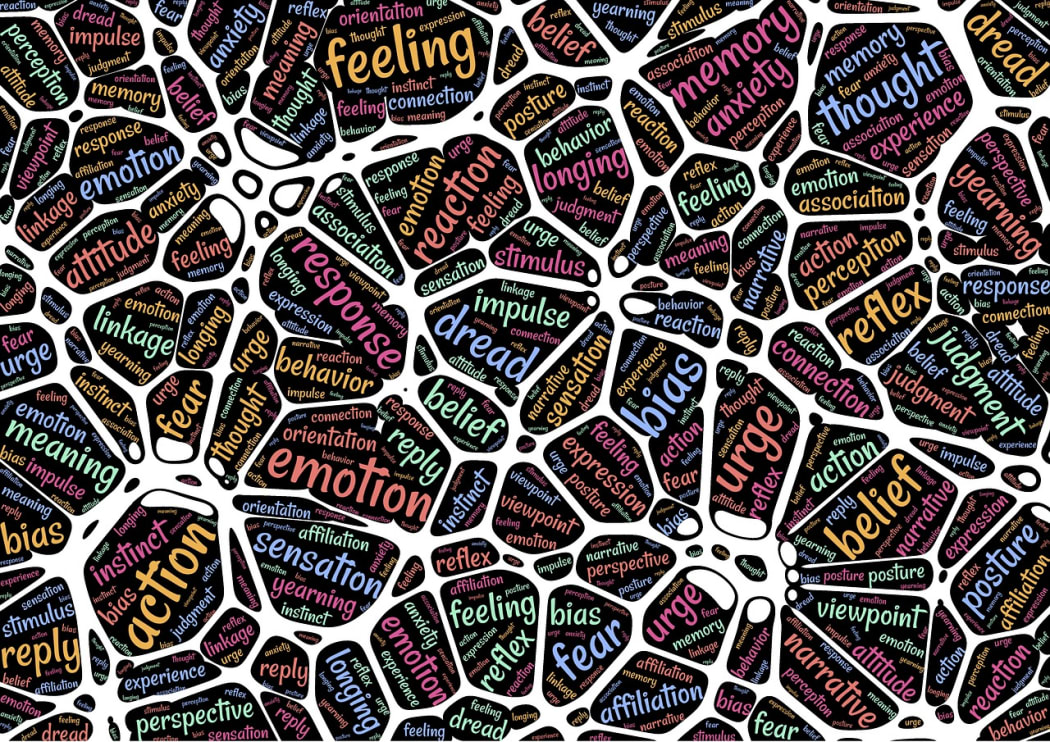Much to our chagrin, the memories we often remember most are the ones that are highly charged — which means the brain often stores scary or traumatic experiences over happy ones.
However, it's also possible, and important, to encode happy memories in your brain with similar intensity.

Photo: Creative Commons
Dr Natalie Dattilo, a psychologist at Brigham and Women's Hospital in Boston, tells Jim Mora taking note of the emotional content of an experience as it's happening makes it easier to file away and recall. Being present in the moment and self-reflective is key in this process.
There are a number of strategies for capturing the intensity of the moment, from keeping a memento to noting aspects of the physical environment.
There are mental health benefits to doing so long term too. Clear memories of good times can help you through bad times, she says. But to do so, we need to work for it.
“However, so much of our memory storage space is taken up by negative memories and primarily scary ones, or unpleasant ones, and that’s actually for pretty good reason — because the brain is designed to keep us alive and in order to do that we need to remember, easily recall the things that presented a potential threat… this is the brain’s default memory mode.
“In order to use some of that space and store more positive memories, we kind of have to manually override the system and be more intentional in our attempts to file them away and then retrieve them later.”

Dr. Natalie Dattilo is a psychologist at Brigham and Women's Hospital in Boston. Photo: Supplied
Many people have memory problems in today’s complex, fast-paced information-driven modern world, with a myriad of passwords to memorise and systems to navigate as part of our day-to-day activities. People struggle to keep up. It is important for us to battle this and stay singularly focusing on what we are doing with an unbending intent. Multi-tasking runs counter to this way of being in the world.
“Our attention is increasingly divided, in ways where the brain is trying to accommodate and may not be adequately designed to do so. Most of the time forgetfulness is more to do with distraction than memory," she says.
We are more likely to remember things that are vivid. Dattilo says we can ‘charge’ our memories, anchoring these in the moment by identifying the emotion these experiences are imbued with. You can then more readily ‘file’ these in a place that will be easily attainable and recalled.
Being fully present, mindful, is key, even in bursts throughout the day, taking in what is happening around you, giving more attention and being more deliberate about what you are focusing on through the day.
Being singular on focus when doing something helps memory too.
Taking note of sensory descriptions of the environment help too. “We are more likely to recall emotionally vivid or emotionally charged memories when that is a heightened sensory experience,” she says.
Going into old age with a wealth of vivid memories is also good for maintaining one's mental health, and a positive perspective on life. Mental health and counselling are also a related areas of interest for Dattilo.
It is hard for people to determine whether the treatment they are getting is good treatment, she says.
“My interest in particular is the stigma attached to seeking treatment for mental health issues. I think the stigma attached to mental illness itself has decreased over time, but we still don’t talk enough about what it’s like to get treatment for those things and what do expect when you pursue treatment.”
She agrees with recent trends where employers have compassionate protocol for workers’ mental health, yet this could be merely instrumental, allowing employees to deal with increasing workloads more efficiently, without taking sick leave.
“I would love to see workplace clinics build onsite for employees to make appointments and see their mental health professionals while at work, since most people who experience depression and anxiety are going to work…”
Dr Dattilo puts significant emphasis on cognitive behavioural therapy as a means of addressing psychological issues and troublesome behaviours.
It is based on the theory that the way we think greatly affects how we feel and what we do, the decisions we make and the things we don’t do, she says.
“If we want to feel better we have to think better we need to think better and there are very predictable ways in the way we think. We all fall into these patterns of thought that are just really unhelpful. Frankly, just sometimes incorrect.
“We make incorrect assumptions about ourselves or the world, or about other people and they’re not often taught to chuck them. We just assume that we’re right.”
Therapists using this technique ask questions to extract the relevant information and data from your expressed thoughts to determine how these assumptions and cognitive deficits are affecting you.
“We also use it to identify longer standing systems of belief. These are more deeply ingrained beliefs and assumptions that a person may have about themselves that are less amenable to change and are sometimes less obvious.”
The patient and therapist work together to ‘re-script’ that self-narrative to address cognitive deficits and ensure that person is better served, bringing new ways of relating and acting in the world.
The therapy process isn’t necessary to achieve some results. Keeping a journal about what we’re thinking is another way of objectively reflecting on our narratives to identify faulty or unhelpful thoughts, she says.
“When you’re writing these things down and you might even read it out loud and read it back to yourself and see how it sounds and how it makes you feel, to hear those words…do you feel better or do you not feel better. That may explain how you are experiencing the world and your emotional experience.”

